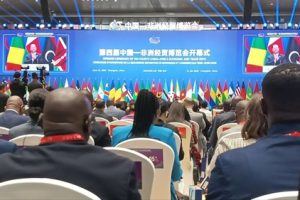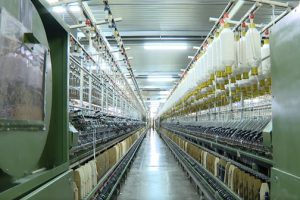
BY HIZKEL HAILU
It is pertinent to recall that Ethiopian government has identified agriculture, industry, tourism, science and technology as well as the mining sector as key engines of its economic development in its ten-year Home Grown Economic reform plan. Ample evidences identified by the World Bank exists that countries that adopt modern mining legislation and offer an enabling environment can attract private sector investment in mining exploration and production.
This, in turn, contributes to increased tax revenues, export earnings, employment opportunities, infrastructure development especially in rural areas, and transfer of technology to the host countries. Owing to this fact, Ethiopian Ministry of Mines has carried out various activities in the last Ethiopian fiscal year considering the attention given to the mining sector.
Investment, especially foreign direct investment (FDI), needs lasting peace. It does not even tolerate any pieces of conflict. However, Ethiopia continues to attract investors even though it has faced many challenges in the past years due to repeated wars waged by the Terrorist TPLF in the northern part of the country and the COVID-19 pandemic. Mining is amongst the other sectors that have attracted more investors.
The Norway-based Akobo Minerals Company is amongst the illustrations that should be mentioned for the above remark. The Company has recently announced that it has obtained the license to extract gold and related minerals in the part of Ethiopia called Segele in the mining sector. Jorgen Evjen, Akobo Minerals Chief Executive Officer, stated that they found Ethiopia to be stable and peaceful. “Following the Company’s decision to invest in Ethiopia,” Jorgon continues, “Other peer companies were nagging and frustrating us about how we can go to a war zone where a conflict has erupted.”
Despite they have also received exaggerated information that Addis Ababa had fallen into the hands of the terrorist group, the CEO has affirmed that the information was completely fake and that Ethiopia is a more stable and peaceful country than many other countries with high mining potential.
Last year, the Ministry of Mines decided not to import coal from the current Ethiopian fiscal year. This is done through allocating foreign currency and substituting imported coal with domestic production. Keeping this in mind, The Ministry signed an agreement with eight local coal mining companies during the last fiscal year.
According to the information obtained from The Ministry’s official website, the companies have promised to purchase coal mining machines and start production within a short period of time. Minister of Mines, Engineer Takele Uma, said; Coal has historically been used for cement production plants. However, steel factories also use 50 percent of coal as input. Local production of coal is a must as the input will be needed when other steel production plants are opened in the future, he explained.
He also entrusted all the eight companies to do their part through providing the necessary resources and starting work the day after signing the memorandum of understanding. As the input is produced locally and supplied to the factories, it is of paramount importance to reduce the annual cost of coal purchase which reaches about 300 million Birr coupled with creating suitable environment for manufacturing industries.
It has been stated that the cement manufacturing industries have been in great difficulty due to the inability to provide enough coal for power input and due to the increase in prices. It is also crystal clear that gold mining is making a significant contribution to the country’s economic growth through earning foreign currency. It is mentioned that the role of traditional gold producers is high in making this a large share.
According to the information obtained from the Ministry, the amount of gold provided by companies engaged in large-scale gold mining licenses companies to the National Bank is not even more than five percent of the total gold deposited into the bank. Yet, it is the traditional gold producers who hold the largest share of gold supply to the bank.
These producers extract the gold in a different way; in extremely tiring conditions that pose a risk to health and physical harm. It is repeatedly stated that if they produce gold in this way, they will not earn as much as their hard work. Therefore, the Ministry’s document also recommends investors to work in collaboration with the traditional producers for better economic gain.
The Ministry is also working hard in order to solve this problem. The decision it put in place during the past fiscal year exactly benefited the producers. As a result, it was able to benefit the producers to get a payment of 10 to 29 percent higher than the world gold selling price. In addition to the positive contribution to producers’ incomes, the price adjustment allowed for an increase in the amount of gold entering to the National Bank.
On the other hand, the information indicates that practical activities have been started to work with international financial institutions so that the sector can keep pace with the current world situation, grow to a higher level and become competitive. The Ministry has also discussed with officials of European Investment Bank, African Development Bank, Netherlands Development Bank and French Development Bank in order to benefit the sector to get high level of financing.
The Ministry has discussed with the Minister of Finance, Ahmed Shede, and various international financial institutions and partners such as the World Bank and the European Investment Bank regarding strengthening the mining sector. During the discussion, the representatives of the financial institutions were briefed Ethiopia’s potential in the mining sector. The financial institutions further expressed their desire to support mining projects in Ethiopia and support the private mining sub-economy.
Gaps in obtaining general information about the mining sector have been another issue raised by the sector. Although some higher education institutions with a department of geography have a modest museum, the information indicates that there are no large-scale museums that can explore the entire national mineral resource.
But now, the Ministry of Mines is trying to fill the gap through laying the foundation for Ethiopia to have a mining gallery. The Ministry has officially launched the gallery also by the last fiscal year. The minister and various parties who visited the gallery expressed their appreciation saying that the mineral gallery has contributed a lot to the country.
As well-known Ethiopian proverb goes for “killing two birds with one stone”, the gallery will provide ample of opportunities for the mineral resources to be expressed in different ways and generate income. It has been also pointed out that the gallery has significant benefits for attracting domestic and foreign investment.
The gallery is also a tourist attraction and contributes to the country’s economic growth through generating income. Its role will be prominent in building the image of the country. In addition to reducing the efforts of the scholars of the field to find information easily, it will also be an easy way for them to identify their research work. One of Ethiopia’s underground mineral resources, oil, has remained untapped.
In the last fiscal year, however, the Ministry signed a contract with an American company called LCAI to study the potential and feasibility of oil and natural resources in the Ogaden area. A certificate confirming the results of the study was handed over between the company and the Ministry.
According to the study, there are 7 trillion cubic feet of natural gas reserves in the Ogaden area. Minister of Mines, Engineer Takele Uma said that the verification certificate enables the country to know how much natural gas Ethiopia has. “The role of the certificate will also enable us to work with large companies that can work and develop our country’s natural resources. This project will bring big economic development by the current fiscal year,” he said.
He also announced that the sector will fulfill its responsibilities in the ten-year home grown economic reform plan, through attracting investment and creating job opportunities for the youth. Cognizant of the benefit of producing coal locally efforts should be made with companies to produce coal locally and avoid imports.
THE ETHIOPIAN HERALD SUNDAY EDITION 18 SEPTEMBER 2022




